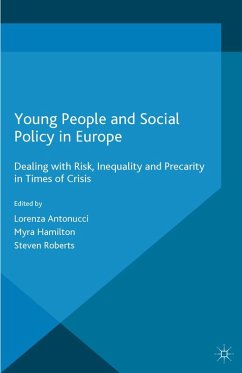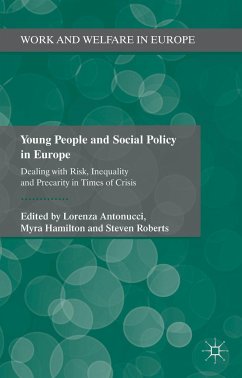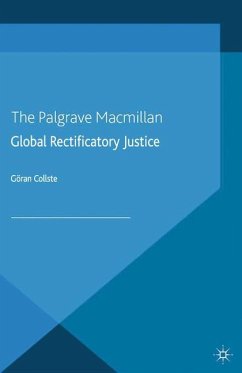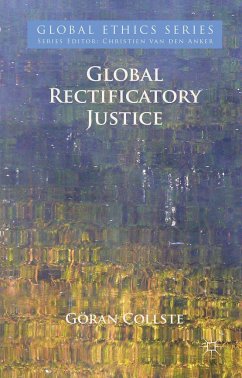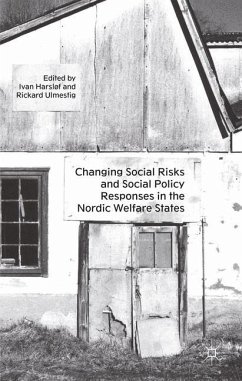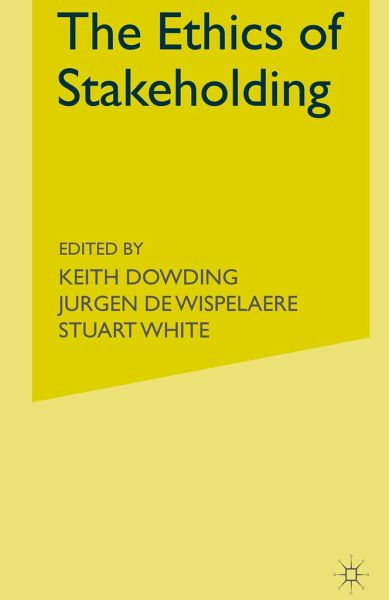
Keith Dowding
Gebundenes Buch
The Ethics of Stakeholding
Versandkostenfrei!
Versandfertig in 6-10 Tagen
Weitere Ausgaben:

PAYBACK Punkte
19 °P sammeln!





The Ethics of Stakeholding brings together leading academics in the fields of political philosophy and social policy to engage with one of the most exciting new paradigms in social policy. Stakeholder policies have been hailed by academics and policy-makers as one of the most promising tools for combating poverty, unemployment and inequality in modern welfare states. This collection by leading academics offers a comprehensive overview of stakeholding and critically explores the ethical foundations of the stakeholder society.
BRUCE ACKERMAN Sterling Professor of Law and Political Science, Yale Law School, Yale University, USA CECILE FABRE Lecturer in Political Theory, Department of Government, London School of Economics, UK ANDREW GAMBLE Professor of Political Science, Department of Politics and Director, Political Economy Research Centre, University of Sheffield, UK ROBERT GOODIN Professor of Philosophy, Research School of Social Sciences, Australian National University, Australia GAVIN KELLY Senior Researcher, Institute for Public Policy Research, UK JULIAN LE GRAND Richard Titmuss Professor of Health Policy, Department of Social Policy, London School of Economics and Co-Director, Centre for the Analysis of Social Exclusion, STICERD DAVID NISSAN Associate Research Fellow, Commission on Taxation and Citizenship, Fabian Society, UK CAROLE PATEMAN Professor of Political Theory, Department of Social Science, University of California, Los Angeles, USA WILL PAXTON Institute for Public Policy Research, UK ROBERT VAN DER VEEN Professor of Political Theory, Department of Politics and International Studies, University of Warwick, UK GIJS VAN DONSELAAR Post-Doctoral Research Fellow, Dutch Research Foundation (NWO), Faculty of Humanities, University of Amsterdam, The Netherlands
Produktdetails
- Verlag: Palgrave Macmillan / Palgrave Macmillan UK / Springer Palgrave Macmillan
- Artikelnr. des Verlages: 978-1-4039-0580-2
- 2003
- Seitenzahl: 212
- Erscheinungstermin: 25. November 2003
- Englisch
- Abmessung: 222mm x 145mm x 17mm
- Gewicht: 395g
- ISBN-13: 9781403905802
- ISBN-10: 1403905800
- Artikelnr.: 21906958
Herstellerkennzeichnung
Springer-Verlag GmbH
Tiergartenstr. 17
69121 Heidelberg
ProductSafety@springernature.com
'Which way forward for our welfare states? No promising answer can be given to this question without a resolute broadening of the narrow limits of what looks politically possible. But no sensible answer can be given to this question without our reflecting both on underlying principles and specific designs, as in this lucid, demanding, multi-faceted dialogue on basic income versus basic endowment.' - Philippe Van Parijs, Professor of Economic and Social Ethics, Université Catholique de Louvain, Belgium Secretary of the Basic Income European Network
'The past twenty years have seen a massive increase in the inequality of incomes and, even more, in the inequality of wealth. Governments have responded by increasing the number of means-tested benefits, which are both degrading and (partly for this reason) not taken up by many who are eligible. The obvious solution is to distribute wealth and income unconditionally, at the expense of those who have so much as to threaten the foundations of human solidarity and democracy. This book contains the best available discussion of alternative ways of realizing freedom and social justice in this way. The editors are to be congratulated on having cunningly included one mean-spirited and misguided contribution which serves as a foil to the others.' - Brian Barry, Lieber Professor in Political Philosophy, Columbia University, USA, and Emeritus Professor of Political Science, London School of Economics and Political Science
'The past twenty years have seen a massive increase in the inequality of incomes and, even more, in the inequality of wealth. Governments have responded by increasing the number of means-tested benefits, which are both degrading and (partly for this reason) not taken up by many who are eligible. The obvious solution is to distribute wealth and income unconditionally, at the expense of those who have so much as to threaten the foundations of human solidarity and democracy. This book contains the best available discussion of alternative ways of realizing freedom and social justice in this way. The editors are to be congratulated on having cunningly included one mean-spirited and misguided contribution which serves as a foil to the others.' - Brian Barry, Lieber Professor in Political Philosophy, Columbia University, USA, and Emeritus Professor of Political Science, London School of Economics and Political Science
Für dieses Produkt wurde noch keine Bewertung abgegeben. Wir würden uns sehr freuen, wenn du die erste Bewertung schreibst!
Eine Bewertung schreiben
Eine Bewertung schreiben
Andere Kunden interessierten sich für


